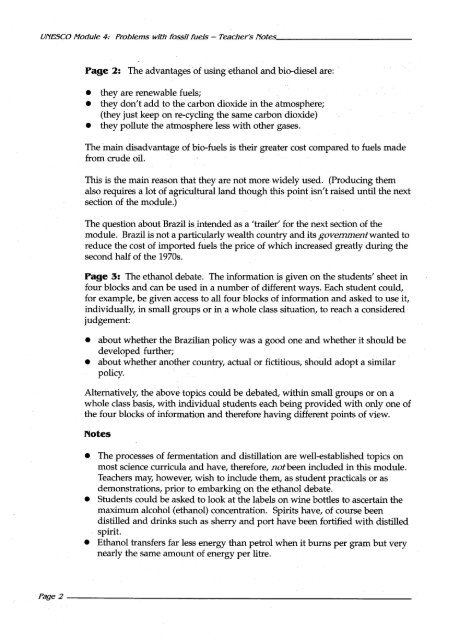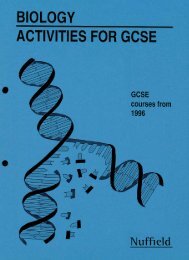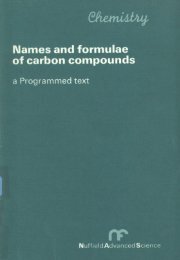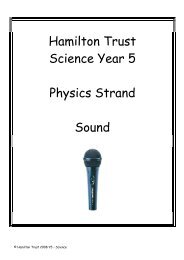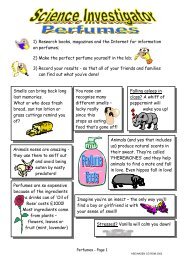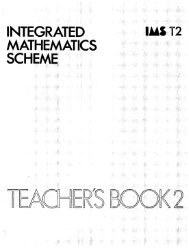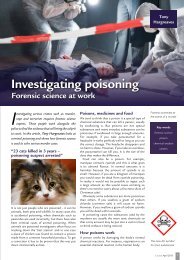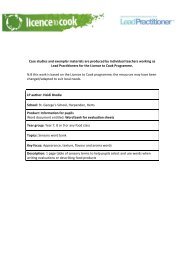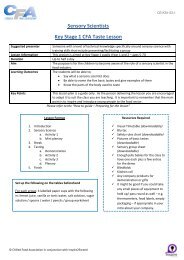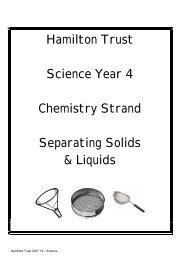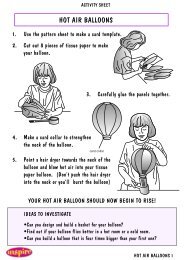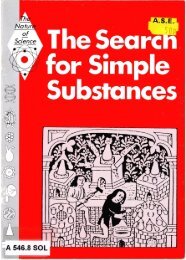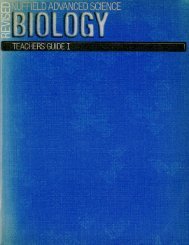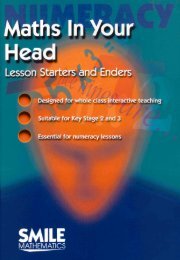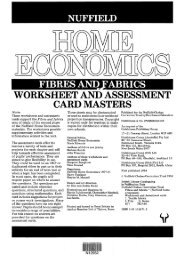UNESCO resource kit - science and technology educa...
UNESCO resource kit - science and technology educa...
UNESCO resource kit - science and technology educa...
Create successful ePaper yourself
Turn your PDF publications into a flip-book with our unique Google optimized e-Paper software.
UNesCOModule 4: Problems with fossil fuels - Teacher'sNotes,_~ ~ __ .<br />
Page 2: The advantagesof using ethanol <strong>and</strong> bio-diesel are:<br />
• they are renewable fuels;<br />
• they don't add to the carbon dioxide in the atmosphere;<br />
(they just keep on re-cycling the same carbon dioxide)<br />
• they pollute the atmosphere less with other gases.<br />
The main disadvantage of bio-fuels is their greater cost compared to fuels made<br />
from crude oil.<br />
This is the main reason that they are not more widely used. (Producing them<br />
also requires a lot of agricultural l<strong>and</strong> though this point isn't raised until the next<br />
section of the module.)<br />
The question about Brazil is_intended as a 'trailer' for the next section of the<br />
module. Brazil is not a particularly wealth country<strong>and</strong> its govemmentwanted to<br />
reduce the cost of imported fuels the price of which increased greatly during the<br />
second half of the 1970s.<br />
Page 3: The ethanol debate. The information is given on the students' sheet in<br />
four blocks <strong>and</strong> can be used in a number of different ways. Each student could,<br />
for example, be given access to all four blocks of information <strong>and</strong> asked to use it,<br />
individually, in small groups or in a whole class situation, to reach a considered<br />
judgement:<br />
• about whether the Brazilian policy was a good one <strong>and</strong> whether it should be<br />
developed further;<br />
• about whether another country, actual or fictitious, should adopt a similar<br />
policy.<br />
Alternatively, the above topics could be debated, within small groups or on a<br />
whole class basis, with individual students each being provided with only one of<br />
the four blocks of information <strong>and</strong> therefore having different points of view.<br />
Notes<br />
• The processes of fermentation <strong>and</strong> distillation are well-established topics on<br />
most <strong>science</strong> curricula <strong>and</strong> have, therefore, not been included in this module.<br />
Teachers may, however, wish to include them, as .student practicals or as<br />
demonstrations, prior to embarking on the ethanol debate.<br />
• Students could be asked to look at the labels on wine bottles to ascertain the<br />
maximum alcohol (ethanol) concentration. Spirits have, of course been<br />
distilled <strong>and</strong> drinks such as sherry <strong>and</strong> port have been fortified with distilled<br />
spirit.<br />
• Ethanol transfers far less energy than petrol when it bums per gram but very<br />
nearly the same amount of energy per litre.<br />
P~e2--- _


